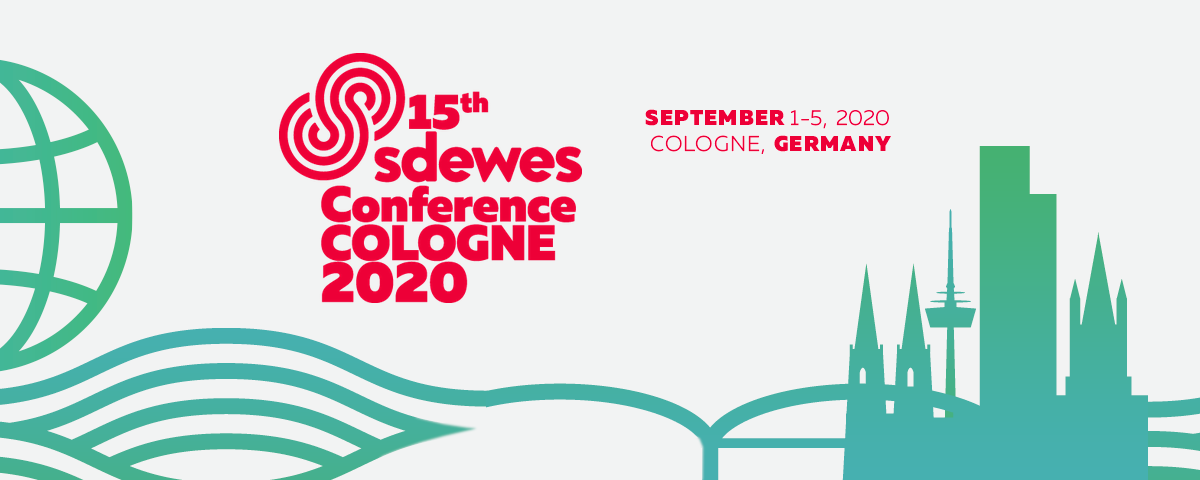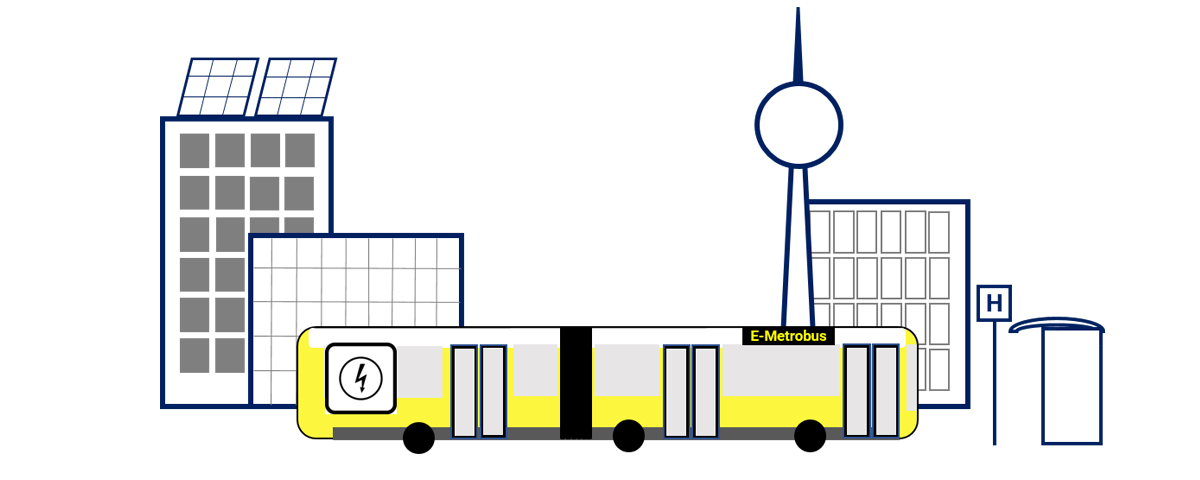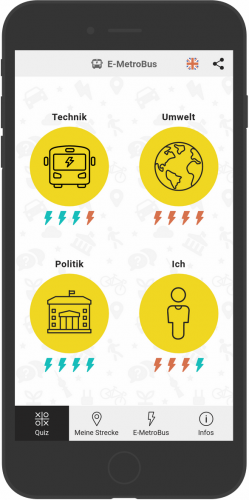Exploring requirements for sustainable energy supply planning with regard to climate resilience of Southeast Asian islands (Lammers et al. 2020)
14. August 2020
01. – 05.09. | SDEWES Conference 2020
1. September 2020E-MetroBus: Launch of Line 200 and passenger app

August 25th 2020 | This week, the first purely electrically driven articulated buses will launch for daily operation on Berlin’s Bus Route 200 as part of the E-MetroBus research project. At the same time, RLI is publishing an app that will help passengers calculate the carbon footprint of their journey and provide further information on the subject of e-buses and sustainable mobility.
A test for opportunity charging in Berlin city traffic
In E-MetroBus, RLI is a scientific partner of the Berlin public transport company BVG, which manages the project. The aim is to test opportunity charging under the conditions of Berlin’s high-frequency regular bus service. For this purpose, two quick-charging points were installed at each of the bus stops Michelangelostraße and Hertzallee, which use a pantograph to charge the buses within a few minutes. A further charging station is located at the Indira-Gandhi-Straße depot. Since the buses are always supposed to recharge exactly the same amount of energy as they have used on the route, there is a theoretically unlimited operating time for the buses.
Accompanying research for BVG
The second scientific partner in E-MetroBus is TU Berlin, which is developing an e-bus control system with better range prognosis, investigating the energy-efficient use of heating and air-conditioning systems, and the environmental balance of the buses. In addition, TU Berlin is helping to develop an operating and incident concept. RLI’s role is to analyze in various scenarios how a local network-based supply of charging stations at bus stops and in depots can be implemented. It has also developed a passenger app.
App provides information on environmental balance
 The app can be accessed online in a browser and does not require installation on peoples’ smartphones. Here, passengers can enter the start and end points of their journey and get an overview of how much CO2, NOx and particulate matter was released during the journey and how the e-bus compares to other means of transport on the same route. In addition, they can put their knowledge of e-mobility to the test with a quiz and find out more about the research project and the BVG’s e-buses.
The app can be accessed online in a browser and does not require installation on peoples’ smartphones. Here, passengers can enter the start and end points of their journey and get an overview of how much CO2, NOx and particulate matter was released during the journey and how the e-bus compares to other means of transport on the same route. In addition, they can put their knowledge of e-mobility to the test with a quiz and find out more about the research project and the BVG’s e-buses.




